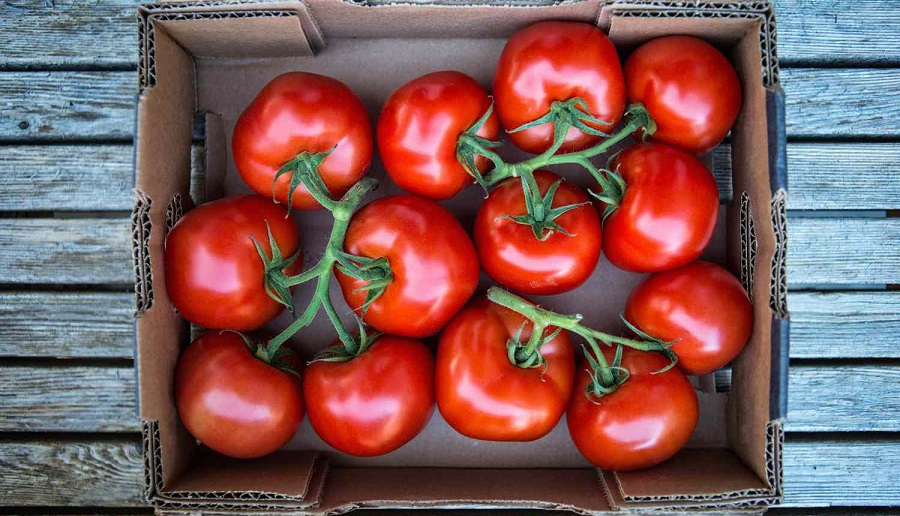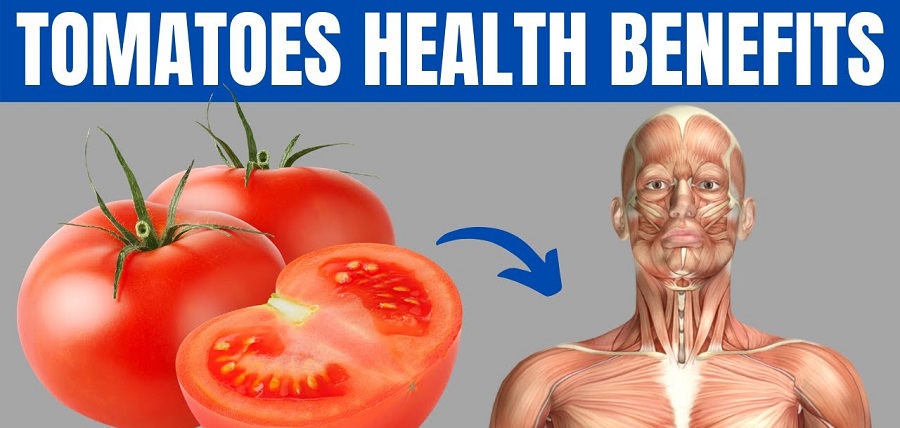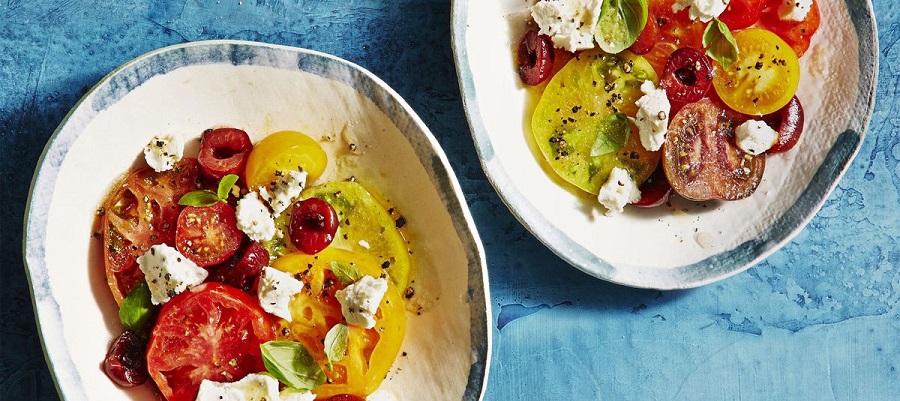What is the best way to store tomatoes to keep them fresh for longer?
The best way to store tomatoes for maximum freshness and flavor is to keep them at room temperature, away from direct sunlight. You can store them on a countertop or in a single layer in a shallow basket or tray. If you have very ripe tomatoes that need to be used soon, you can store them in the refrigerator for up to a few days, but keep in mind that refrigeration can cause them to lose flavor and texture. Avoid storing tomatoes in plastic bags or containers, as this can cause them to spoil more quickly.
How long can tomatoes be stored in the refrigerator before they start to lose flavor?
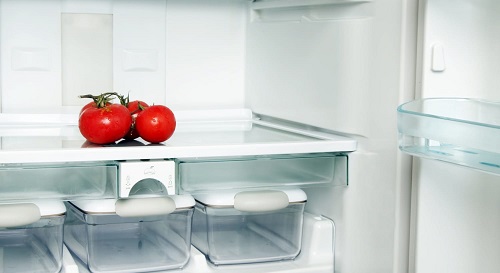
Tomatoes can be stored in the refrigerator for up to a few days before they start to lose flavor and texture. However, it's important to note that refrigeration can cause the tomatoes to become mealy and lose their natural sweetness. For best results, it's recommended to only refrigerate tomatoes that are fully ripe and need to be used soon. If you have unripe tomatoes, it's best to leave them at room temperature until they fully ripen before refrigerating or consuming.
Are there any special techniques for storing cherry tomatoes or grape tomatoes?
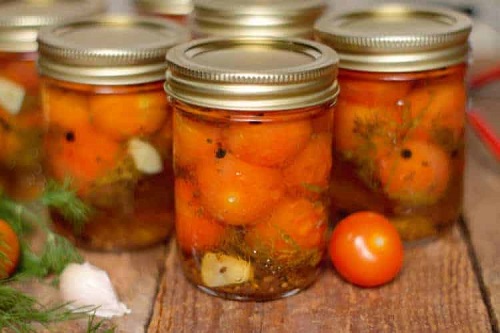
Yes, there are some special techniques for storing cherry tomatoes or grape tomatoes to keep them fresh for longer. Here are some tips:
-
Store them at room temperature: Cherry tomatoes and grape tomatoes are best stored at room temperature. They can be kept in a cool, dry place, away from direct sunlight.
-
Keep them in a container: To prevent bruising or damage, store cherry tomatoes and grape tomatoes in a container. You can use a shallow bowl, basket or a plastic container with a lid.
-
Don't wash them until ready to use: Washing cherry tomatoes or grape tomatoes can cause them to spoil faster. Wait until you're ready to eat or cook them before washing them.
-
Store them with the stem side down: Place cherry tomatoes or grape tomatoes stem side down in the container to help them stay fresh longer.
-
Use them within a few days: Cherry tomatoes and grape tomatoes are best eaten within a few days of purchase. Try to use them up quickly to enjoy their full flavor and freshness.
Can tomatoes be stored in the freezer for later use?
Yes, tomatoes can be stored in the freezer for later use. One common method is to blanch the tomatoes by boiling them for a few minutes, then plunging them into ice water to stop the cooking process. After peeling off the skins, the tomatoes can be frozen whole or chopped and stored in airtight containers or freezer bags. Frozen tomatoes are best used in cooked dishes, such as sauces or soups, as they can become mushy after thawing.
What are some common mistakes people make when storing tomatoes?
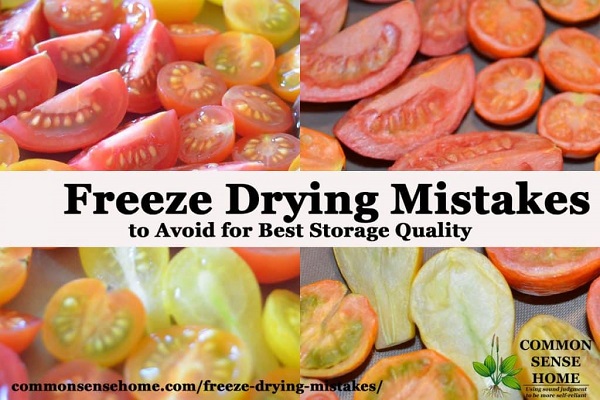
Here are some common mistakes people make when storing tomatoes:
-
Refrigerating them too early: Tomatoes should only be refrigerated after they have ripened to their desired level of sweetness and are fully red in color. Refrigerating tomatoes before they are ripe can cause them to lose their flavor and become mealy.
-
Storing them in plastic bags: Tomatoes need to breathe, and storing them in plastic bags can cause them to spoil more quickly. It's best to store tomatoes in a breathable container, such as a cardboard box or a mesh bag.
-
Storing them in direct sunlight: Tomatoes should be stored in a cool, dark place away from direct sunlight. Sunlight can cause them to ripen too quickly and spoil.
-
Storing them near other fruits and vegetables: Some fruits and vegetables, such as apples and bananas, produce ethylene gas which can cause tomatoes to ripen too quickly and spoil.
-
Cutting them too early: Cutting tomatoes too early can cause them to lose their flavor and become watery. It's best to wait until you're ready to use them before cutting into them.
By avoiding these common mistakes and following proper storage techniques, you can keep your tomatoes fresh and flavorful for longer.
Is it better to store tomatoes on the counter or in the refrigerator?
It is generally better to store tomatoes on the counter at room temperature rather than in the refrigerator. This is because refrigeration can cause tomatoes to lose flavor and become mealy in texture. Tomatoes stored at room temperature can last for several days to a week, depending on their ripeness when purchased. However, if the room temperature is particularly warm, it is best to consume the tomatoes sooner rather than later. If you do need to refrigerate tomatoes, it is best to let them come to room temperature before consuming for optimal flavor.
How can you tell if a tomato is ripe enough to be stored?
To tell if a tomato is ripe enough to be stored, you can gently press it with your fingers. A ripe tomato should be firm but yield to gentle pressure. The skin should also be smooth and free of any bruises or blemishes. Additionally, the tomato should have a bright, vibrant color that is consistent throughout the fruit. If a tomato is still hard and green, it is not yet ripe and should be left to ripen at room temperature before being stored.
Are there any specific containers or bags that work best for storing tomatoes?
Yes, there are specific containers and bags that can help keep tomatoes fresh for longer. Here are some options:
-
Mesh bags: These bags allow air to circulate around the tomatoes and prevent moisture buildup, which can cause the tomatoes to spoil. They are also reusable and eco-friendly.
-
Cardboard boxes: Tomatoes can be stored in cardboard boxes lined with paper towels, which help absorb excess moisture.
-
Glass or plastic containers: These containers can keep tomatoes fresh for a few days and prevent them from being squished. Make sure to choose containers with tight-fitting lids.
-
Plastic wrap: Tomatoes can be wrapped individually in plastic wrap and stored in the refrigerator for a few days.
It's important to note that storing tomatoes with other fruits and vegetables can cause them to ripen and spoil faster due to the release of ethylene gas. Therefore, it's best to store tomatoes separately from other produce.
Can you store tomatoes with other fruits and vegetables, or should they be kept separate?
Tomatoes should ideally be stored separately from other fruits and vegetables as they produce a gas called ethylene as they ripen, which can cause other produce to ripen and spoil more quickly. If you must store tomatoes with other produce, choose ones that are ethylene-sensitive, such as leafy greens or broccoli, rather than those that produce ethylene, such as bananas or apples.
How does storing tomatoes in a paper bag or with a ripe banana or apple help to prolong their freshness?
Storing tomatoes in a paper bag or with a ripe banana or apple can help to prolong their freshness due to a natural ripening process called ethylene. Ethylene gas is produced by fruits as they ripen, and when this gas is trapped in a confined space with other fruits or vegetables, it can accelerate their ripening process. In the case of tomatoes, the ethylene gas produced by a ripe banana or apple can help to ripen them more quickly and evenly, leading to a better flavor and texture. However, it's important to note that storing tomatoes with other fruits or vegetables should be done with caution, as some fruits and vegetables release ethylene gas at a higher rate than others and can cause the tomatoes to over-ripen or spoil more quickly.
